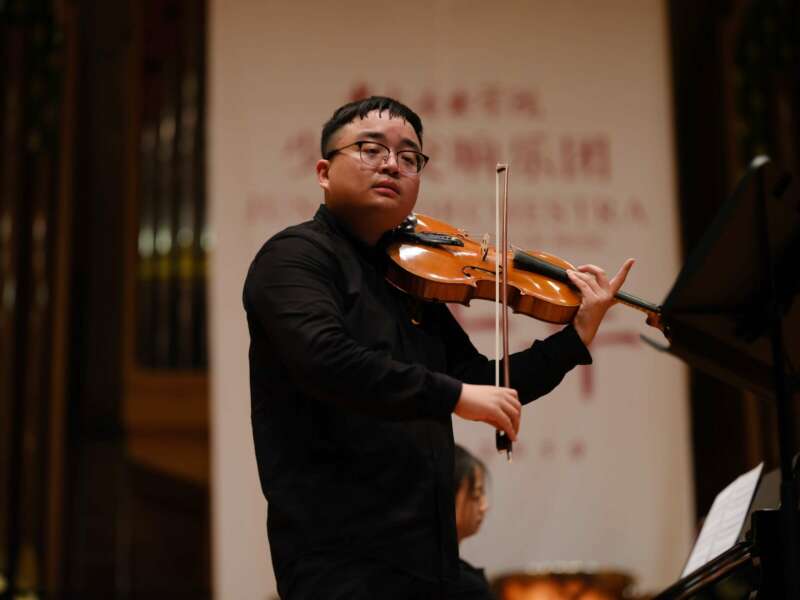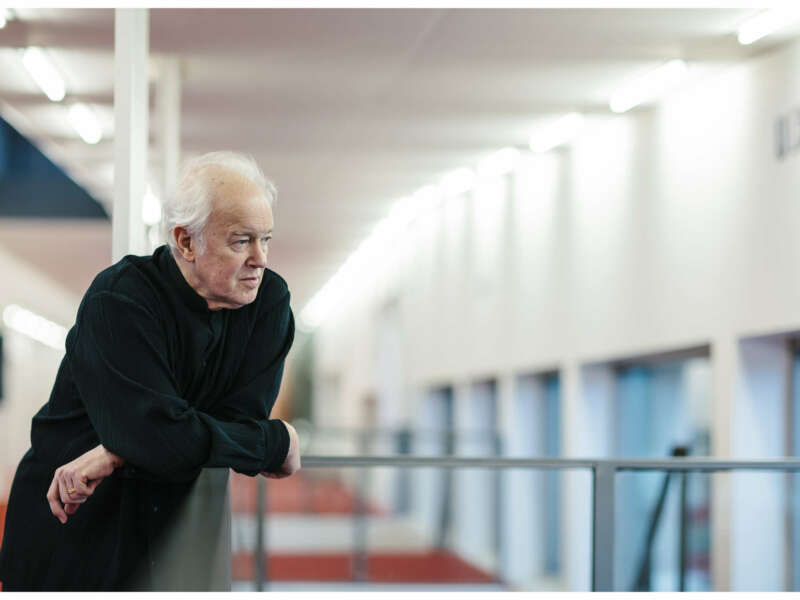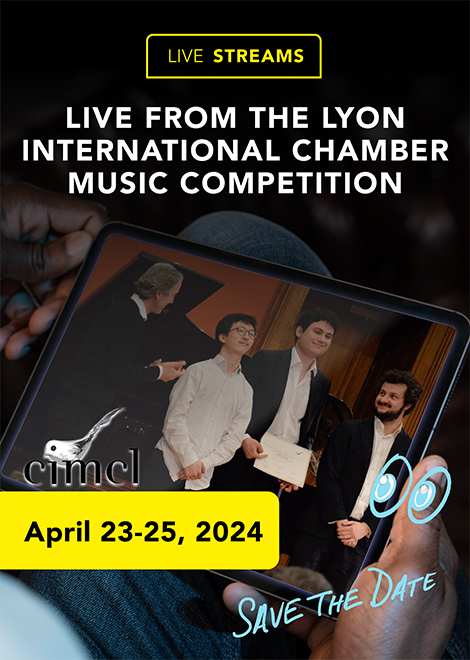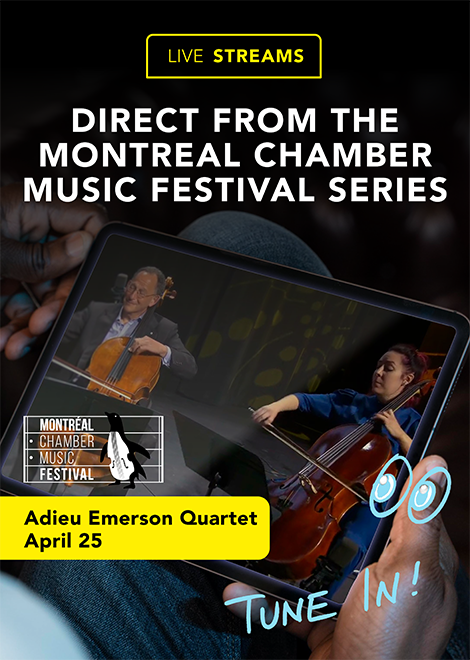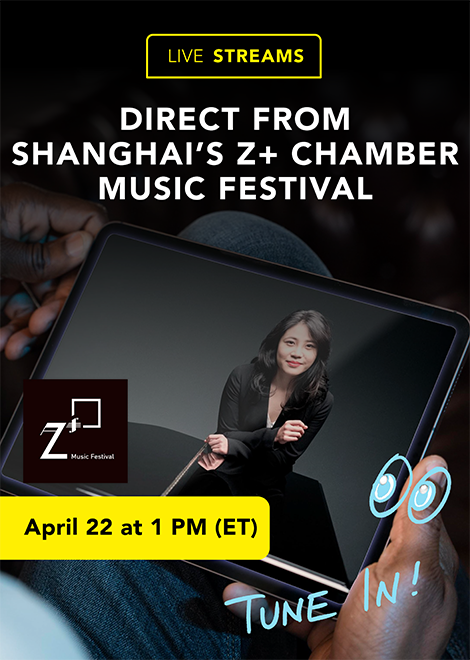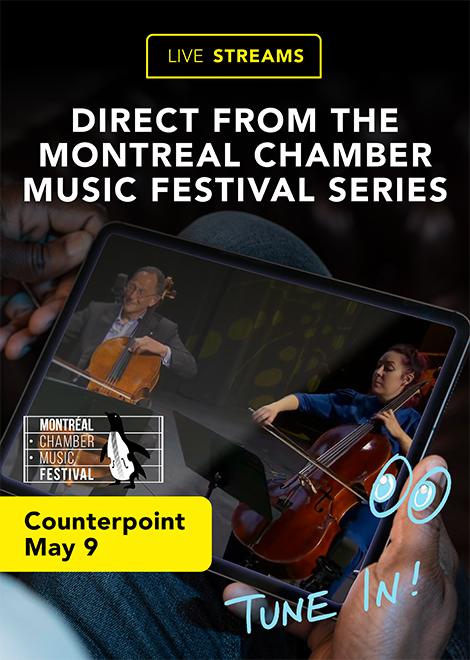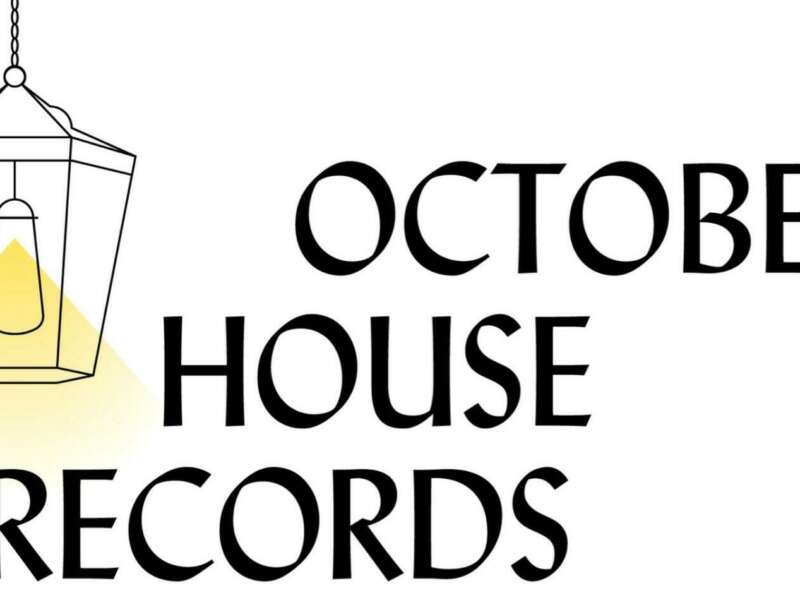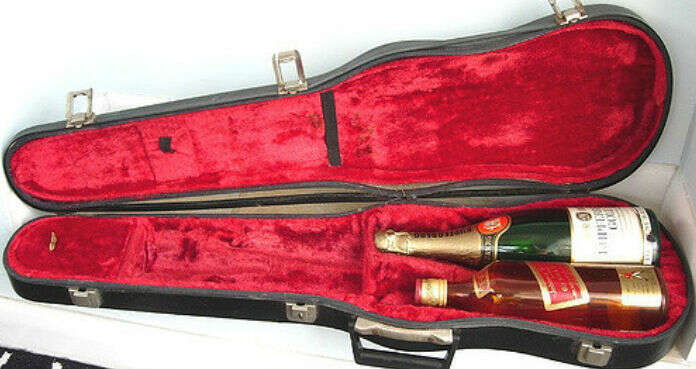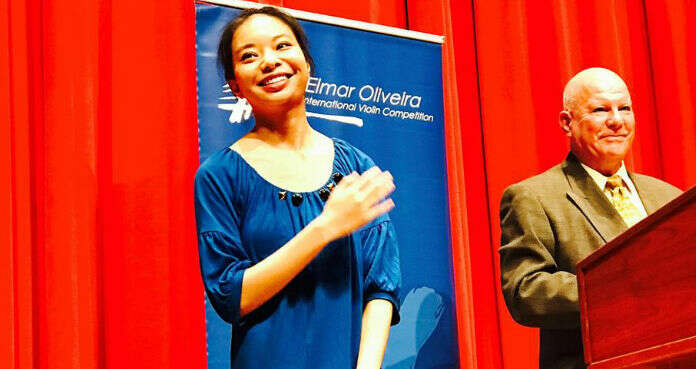VC INTERVIEW | Alexander String Quartet—Beethoven's 250th Anniversary
The ensemble will present two concerts online on November 16,which will be available through November 29 on Baruch College's website. Admission is pay-what-you-can.
The Violin Channel recently caught up with the Alexander String Quartet, Quartet-In- Residence at Baruch College, in New York, since 1986.
The program features Beethoven's Quartet Op. 18 No. 1, Op 59 No. 2, Op. 135, and Op. 132, and American composer George Walker’s Lyric for String Quartet.
Tell us about your long-standing residency at the Baruch University? How do you approach your interactions with the students?
"The quartet has been spending one week each semester at Baruch College since 1986," said violinist Frederick Lifsitz. The plan and long term funding for this innovative residency was put together between the Quartet members and Aaron and Freda Silberman. Aaron had graduated from Baruch on the GI Bill back in 1946 after serving in WW2. He and Freda became huge patrons of music in Pittsburgh where they settled but were large donors to Baruch and wanted to endow the gift of music to the liberal arts and business students there, many of whom were usually too busy to go out to concerts while they were studying and working."
"The idea has been that we go to classes in any and all of the disciplines in the liberal arts—from psychology to mathematics, world literature to music history. Everything. We play and speak with the students, usually making connections between the subject matter they are dealing with and the music and impetus behind the creation of the music we play."
"It’s been a two-way street in terms of satisfaction and meaning. The appreciation we and our art form have received from the students and Baruch College faculty and community over these 34 years has been enormously rewarding."
"We also take a few hours every semester to read and record compositions from the students in the harmony and composition classes with Professor Philip Lambert. It’s a blast and seeing the expression on their faces when they hear their own works being played live in front of them is priceless!"
Tell us what you have planned to celebrate Beethoven’s 250th anniversary?
"We began the celebrations at the beginning of the 2019-20 season with a series of seven Saturday morning lecture/performances of the complete cycle of string quartets, presented in chronological order by San Francisco Performances together with our dear friend and frequent collaborator, the composer Robert Greenberg."
"Inevitably the cycle was interrupted in March 2020 by the Coronavirus pandemic but we managed to record several of the quartets remotely, including from our respective homes, delivering them to our many followers in 'Hollywood Squares' style. We will re-schedule the “missing” live lecture/performances during the spring and summer of 2021, as circumstances allow."
"Meanwhile, we are preparing a 250th birthday presentation that San Francisco Performances will stream progressively later in December. Many of our presenters, and in particular Baruch College’s Performing Arts Center have hosted similar Beethoven-Centric programming, and in the case of BPAC, also featuring George Walker’s Movement from his first string quartet, a reflection on the Heiliger Dankegesang from Beethoven’s Op. 132. Similar initiatives continue to be celebrated together with the Mondavi Center at UC Davis and Music at Kohl Mansion in Burlingame. Some have already streamed and others are still to come."
"Meanwhile, we curated 'Beethoven and Modernity', a year of interdisciplinary intersections at San Francisco State University with our College of Liberal and Creative Arts “Extraordinary Ideas” initiative. Included have, or will be a host of special activities including student choreographed Dance Premiere, a competition for student composers, performances of Beethoven’s An die ferne Geliebte, (Kindra Shiarich) the Moonlight Sonata and the 4th Piano Concerto (Jeffrey LaDeur) with quintet accompaniment, all featuring period keyboard instruments and related guest lectures. We even programmed live concert film animations of some of Beethoven's quartet scores by our colleague Stephen Malinowski. We hope that several of these postponed activities will be rescheduled during the year to come as we continue to fete Beethoven, the Disruptor." said cellist Sandy Wilson.
Tell us about George Walker. One of your two concerts presented includes one of his most famous pieces, ‘Lyric’ for string orchestra. And, what are the links between this piece and Beethoven’s Quartet Op. 132?:
"This year has hit us with many concerns from many facets- but one very important issue has been the fact that we need to pay attention to fine black American composers and their work needs more exposure. George Walker was a man who opened many doors for black American classical musicians in this country. Graduating from the Curtis Institute of Music in 1945, playing as a piano soloist with the Philadelphia Orchestra, among the many triumphs in his long life. He won a Pulitzer Prize for his 1996 orchestral work 'Lilacs'. He served on the faculty of several of the finest universities and music schools.
Since we were planning on playing the Beethoven Opus 132 we studied George Walker’s beautiful Adagio from both the original string quartet number 1 version and the string orchestra arrangement he’d made of it known as “Lyric for Strings”- in a similar vein as his own teacher, Samuel Barber’s arrangement of his “Adagio for Strings” from 1936. Walker writes for the string quartet with as much richness of tone and texture as did Beethoven and this movement has always felt like it had a direct relationship with Beethoven’s late writing so we felt it could make a wonderful pairing with Beethoven’s Opus 132. It is utterly heartfelt and inspiring," said violinist Frederick Lifsitz.
Your second concert features in-depth exploration of three of Beethoven’s Quartets. With these three monumental works, what is it you are fundamentally trying to communicate with your audience?
"For all of the Alexander Quartet’s 39 years we have been blessed with many opportunities to break out of the traditional concert format and present concerts featuring both words and music - often around one particular composer.
"This special Beethoven performance is framed by biographical commentary and historical perspective from Paul Yarbrough, our founding violist. The audience has the chance to get into the mind, life, and world of Beethoven. He navigated incredibly fast-moving and complex times, took the role of the composer from being that of a high-class servant to a hero to society, and not just the common person.
Aristocrats and royalty were wowed by his genius, too, even if they did not always understand his music at that moment. We love to have our audience leave with a renewed sense of the continuing relevance of Beethoven’s music and how it gives both an intensely personal message along with a powerful and continuing sense of triumph over adversity. Paul’s wonderful approach does just that, for both knowledgeable listeners and folks new to this genre alike."
How do you think Beethoven’s music is relevant in today’s world?
"It is not infrequently I am reminded that Beethoven’s music may NOT be everybody’s cup of tea. Yet, without necessarily knowing who penned it, most people will respond to a snippet of his music, whether the rhythmic tattoo from the opening of the 5th Symphony, or the opening lines of "Ode to Joy” from the 9th, or perhaps just "Für Elise."
Something about his music seeps through the subconscious and manages to stir an essential human response in us regardless of our circumstances, previous exposure or background, and frequently, the primary response, even if involuntary is one of empathy.
Many of us are familiar with the legend of his difficult childhood, the tragedy of his hearing loss, and his social awkwardness and disagreeable disposition toward many. But we are also mindful of his awesome reputation as genius at the keyboard and not least, of his matchless musical and spiritual gift to humankind through the magnificent compositional output that has endured these 250 years - after all, it continues to inspire, reward, elevate, console and comfort us.
Beethoven's outrage is our outrage. We would embrace his principled protests as our own if we could. There is embodied in his legacy something universally hopeful and yet, quintessentially forgiving. It may be something to do with the fact that his musical output spans an entire lifetime's work and experience and arguably, at a particularly challenging and pivotal time in history.
There is something virtually everywhere in his life's output that will resonate with our own human experience no matter our age or maturity, whether celebratory or in commiseration, we recognize ourselves in his aspirations as well as in his imperfections and shortcomings. Whether we are able to navigate, or merely to stumble through the oppressive challenges and tribulations of our current lives, we will almost certainly fare better and with more empathy for our fellow time-travelers, thanks to Beethoven’s music," said cellist Sandy Wilson.
If we want to hear these two performances, how can we tune in?
"Both of the Alexander String Quartet programs at Baruch Performing Arts Center are available on demand through November 29, 2020 via Baruch PAC’s website. Tickets are pay what you wish.
april 2024
may 2024




